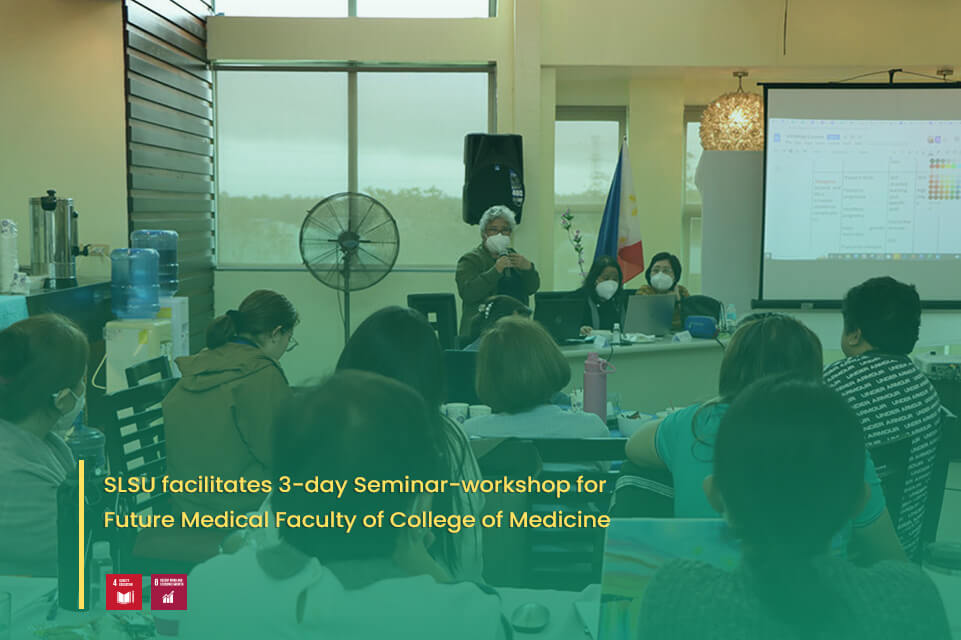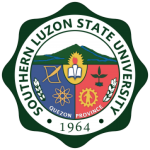
The Southern Luzon State University (SLSU) facilitated a three-day seminar-workshop for the future medical faculty of the College of Medicine (COM), Nov. 4 – 6, 2022.
The three-day training aimed to equip the participants with knowledge on the basic principles of developing outcome-based education course design. Further, the output of the workshop was to formulate course syllabus.
Ms. Melflor A. Atienza, MD, MHPEd discussed the topic, “The Landscape that Shapes Medical Education in the Philippines,” for the first session. While Ms. Erlyn A. Sana, PhD talked about outcome-based education as curriculum and instructional design model in the second session. All of the 37 participants were grouped according to 11 departments: Anatomy/Histology, Biochemistry, Physiology, Pharmacology, Microbiology/Parasitology, Pathology, Preventive Medicine, Internal Medicine, Pediatrics, Ob-gyne, and Surgery to produce course syllabus aligned with the University’s vision, mission, and goals.
For the day 2 of the workshop, participants were required to formulate their respective course syllabus. The same groups developed course packs for the first to fourth year for the future students of the College of Medicine. The guest speakers guided the participants through the formulation of objectives, organizing subject matter, selection of appropriate instructional resources, delivery strategies, and appropriate assessment procedures. They also conducted a plenary wherein participants presented and critiqued each course syllabus.
Two more sessions were made on the last day. Dr. Atienza discussed the clinical teaching strategies, while Dr. Sana taught about the teaching, research and extension service. The facilitators including Ms. Claire D. Pastor, LPT supervised an open forum to address all questions from the workshop.
The seminar-workshop is in response to the comments made by the Commission on Higher Education – Office of Program Standards Development (CHED – OPSD) with regards to the areas concerning faculty profile and curriculum outline which are some of the areas necessary for the institutionalization of the College of Medicine.
